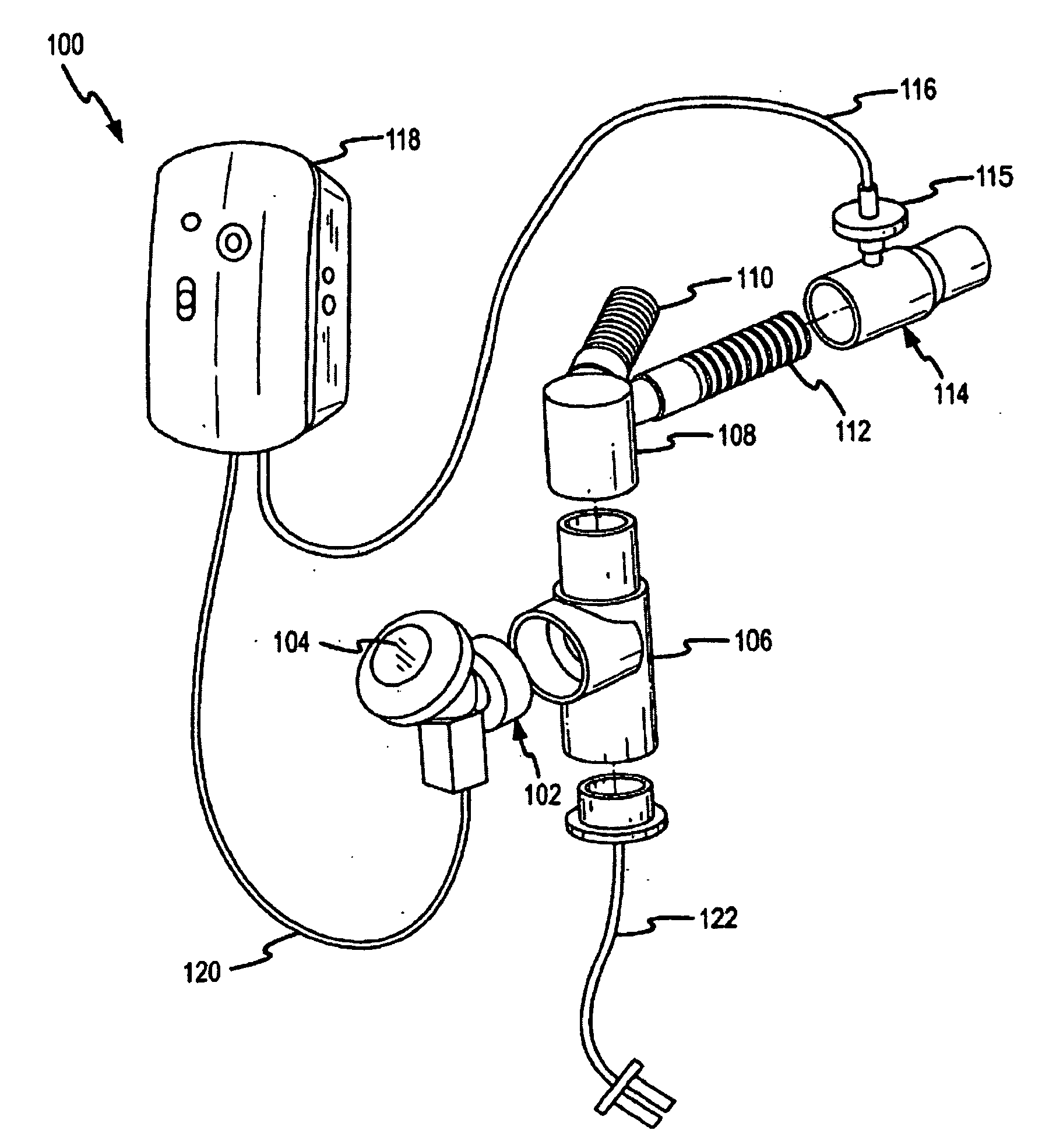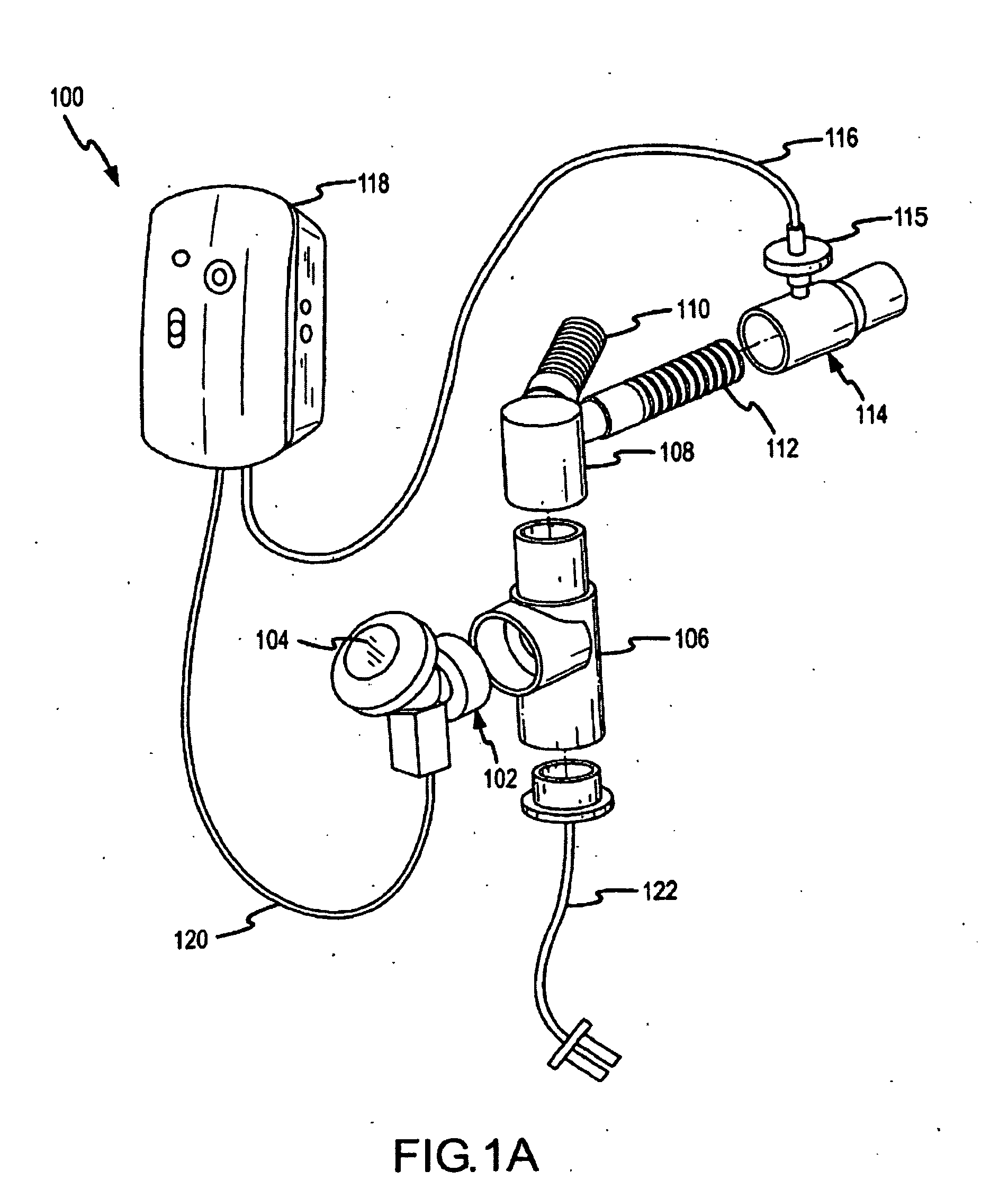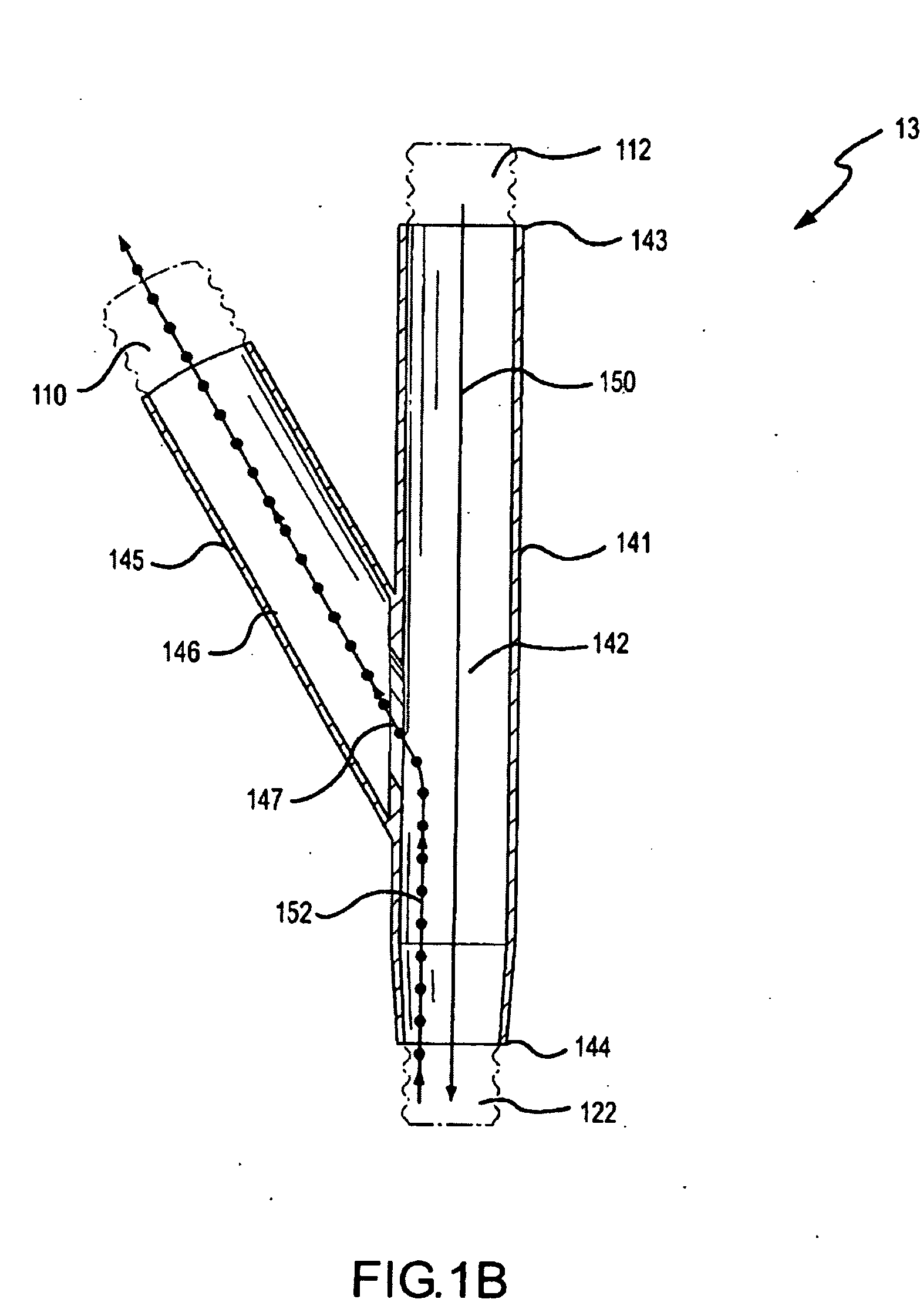Methods and systems for operating an aerosol generator
- Summary
- Abstract
- Description
- Claims
- Application Information
AI Technical Summary
Benefits of technology
Problems solved by technology
Method used
Image
Examples
example a
[0142] Delivery efficacy tests were conducted with an on-ventilator PDDS aerosolizing an aqueous solution of amikacin sulfate. The PDDS ventilator circuit configuration was similar to the one shown and described in FIG. 2 above. A 400 mg dose of the amikacin was run through the PDDS. The PDDS was configured to deliver the aerosolized medicament by a phasic delivery regime similar to the one shown in FIG. 12C. The medicament dose was delivered over the course of about 50 to about 60 minutes.
[0143] Table 2 presents efficiency data for the delivery of aerosolized medicament to through systems according to embodiments of the invention. In the experimental setup, aerosolized droplets deposited on an inspiratory filter placed at a patient end interface are weighed and compared to the total weight of the dose of medicament that was aerosolized. The percentage of a dose deposited on the inspiratory filter represents the fraction of the total aerosolized dose that would be inhaled by a pati...
example b
[0145] One or more embodiments of devices, apparatus and / or methods of the present invention overcome the disadvantage of prior art treatment methods wherein an aminoglycoside (or other antibiotic) is administered systemically to treat a local, e.g. lung infection. Thus, for example, the systemic administration (e.g. oral, IV etc) of an aminioglycoside to treat intubated patients with Gram negative pneumonia, has been limited by the toxicity of the aminoglycoside, and by poor penetration of the material into the lung. This Example according to one or more embodiments of devices, apparatus and / or methods of the present invention illustrates the effect of aerosolizing an aminoglycoside antibiotic, such as amikacin, and resulting enhanced diffusion in the peripheral lung, or alveolar regions.
[0146] A study, using a double-blind, placebo-controlled protocol, was conducted of nebulized amikacin delivered using one or more embodiments of the pulmonary drug delivery system of the present ...
example c
[0150] In this Example, the dose-response to aerosolized amikacin, administered in accordance with one or more embodiments of devices, apparatus and / or methods of the present invention was evaluated, as was the ability to deliver a predefined target multiple of an MIC for Gram-negative bacteria causing pneumonia, including, Pseudomonas species, in the tracheal aspirates (TA). In particular, one or more embodiments of devices, apparatus and / or methods of the present invention was used to deliver twenty-five times a reference MIC value for Gram-negative, pneumonia-causing bacteria, which value was determined to be 256 μg / mL locally in TA. Thus the desired multiple is 6,400 μg / mL.
[0151] A study, using a double-blind, placebo-controlled protocol, was conducted of nebulized amikacin delivered using one or more embodiments of the pulmonary drug delivery system of the present invention in ventilated patients with Gram-negative pneumonia. The aerosol therapy was adjunctive to IV therapy pe...
PUM
| Property | Measurement | Unit |
|---|---|---|
| Fraction | aaaaa | aaaaa |
| Fraction | aaaaa | aaaaa |
| Fraction | aaaaa | aaaaa |
Abstract
Description
Claims
Application Information
 Login to View More
Login to View More - R&D
- Intellectual Property
- Life Sciences
- Materials
- Tech Scout
- Unparalleled Data Quality
- Higher Quality Content
- 60% Fewer Hallucinations
Browse by: Latest US Patents, China's latest patents, Technical Efficacy Thesaurus, Application Domain, Technology Topic, Popular Technical Reports.
© 2025 PatSnap. All rights reserved.Legal|Privacy policy|Modern Slavery Act Transparency Statement|Sitemap|About US| Contact US: help@patsnap.com



